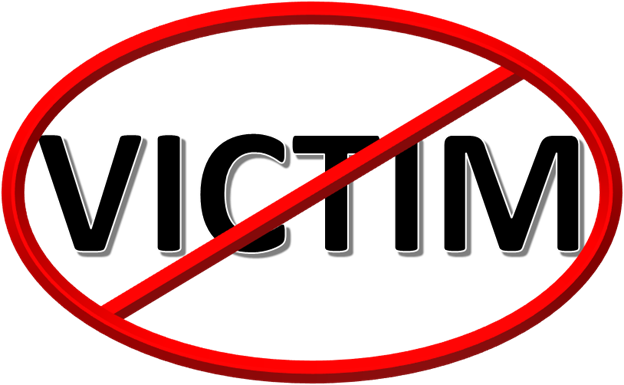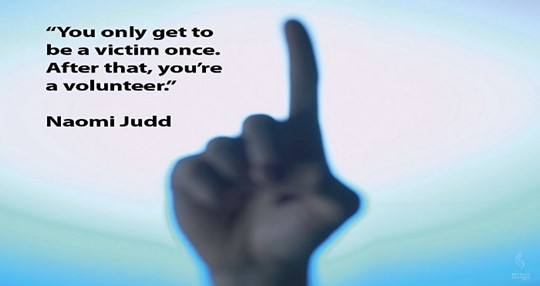
“Victims declare, “The world is responsible for me,” and never do anything to better their quality of life.”
― Henry Cloud
Has anybody else noticed the rise in the victim mentality in recent years? Has anyone identified that rise with a corresponding rise in narcissistic behavior? Coupled with this is a lack of respect of authority, no ability to respect someone with a different position or view than their own. As these diminish, civility has become very scarce, and personal responsibility seems to be extinct.
Wow is that depressing. Do these things affect the interview scenario, how we conduct investigations, or obstacles in the audit arena? They most certainly do, and we need to be aware of, have tools to address, and have the confidence and credibility to slay these societal dragons. Let’s look at this subject with an open mind, and as hard as it might be, demonstrate that gratitude we talked about last week.
The Prevalence of a Victim Mentality in Today’s Society
A victim mentality is a type of dysfunctional mindset in which an individual actually looks for persecution in order to gain attention or avoid self-responsibility. These individuals who suffer from victim mentality are convinced that life is out to get them and there is nothing they can do about it. This way of thinking leads constantly blaming others, accusatory finger-pointing, and boohoo pity parties, fueled by fear, pessimism, and anger.
These “excuses” afford the individual the opportunity to not do anything, because anything they do won’t help. So, is laziness inextricably coupled with this? The concept of putting your head down and plowing ahead does not exist. With this mindset, we often see the development of a narcissistic focus that further negatively affects that individual.
What does a victim mentality stem from?
People aren’t just born with a victim mentality, it is an acquired trait, brought about by early childhood experiences and the coping mechanisms developed to deal with them. Most of these people became victimized in some way as kids. Physical, sexual, emotional or psychological abuse is usually present; however, self-victimization may also develop through the codependent relationships they had with their parents, or by watching an unhealthy victim mentality demonstrated by family members.
Often it is a building issues from events that they have encountered throughout life, and this becomes their response to them. I have done hundreds of interviews in prisons that are overfilled with victims, or individuals that perceive themselves as victims. It is important to always recognize this if you have the responsibility of interviewing these people.
Why having a victim mentality can be beneficial.
When you always play the victim, there are some surprising perks that come with this way of thinking. Many “victims” have come to recognize these benefits which add to the continued behavior and inability or lack of desire to change.
Some of these perks may include:
- Not having to take responsibility for anything (projection: it is always someone else’s fault)
- People feel sorry for you
- People pay extra attention to you
- You have the “right” to complain
- People aren’t as likely to upset or criticize you
- You feel interesting/important because you get to tell everyone your sad stories
- You’re more likely to get what you want
When someone constantly plays the role of the victim, they actually get a lot of power. The power to avoid responsibility, the power to feel justifiably sad and persecuted, and the power of manipulation of other people. That power emboldens the individual for essentially doing nothing.
Harmful effects of a victim mentality

Most of the people who play the victim do so unintentionally, but the victim role still requires a lot of string-pulling and manipulation. Those of us in friendships or relationships with victims may feel like puppets who dance and become whatever the victim believes we are or wants us to be. This is where we see problems with developing codependency and enablers.
When you get other people to feel sorry for you, it becomes easier to wrap them around your finger. This craving to control others, often unconsciously, through gaining their sympathies, is a way for the brain to reinforce the belief of, “I’m a victim” ego identity.
Playing the victim may also be used by abusive and/or sociopathic people. They use this role to help keep an emotional leash on those around them. For instance, a narcissistic person might constantly put their partner down, then dwell on the one time their partner went off and called them names, making it seem like they are in fact the “abused one.” Or a physically abusive person might use the excuse that they “always have to put up with the other person” as a reason for beating up their partner. It is difficult at times to know what appeared first, the victim mentality or the anti-social behavior, but undoubtedly, they feed off one another.
In codependent relationships, self-victimization can be used by both the abuser and the enabler, and sometimes both at the same time in some kind of strange power struggle. These exhibits also show up in the interview room which requires us to have enough knowledge to effectively combat this manipulation.
There isn’t a specific “type” of person that assumes the victim role, they aren’t all narcissists or sociopaths. All types of individuals can play from sweet old ladies to rebellious teenagers, mothers, fathers, professionals, and even “spiritually woke” people. And as mentioned above, it seems to be reaching epidemic levels. So what do we look for?
16 signs of the victim mentality
- Constantly blaming other people or situations for feeling miserable
- Possessing a “life is against me” philosophy
- Cynicism or pessimism
- Minor problems get blown out of proportion and become catastrophes
- Thinking others are out to get you
- Refusal to consider other people’s perspectives when talking about issues
- Believing you’re the only one being targeted for mistreatment
- Reliving the past and painful memories that made you feel like a victim
- Even when things go right, you find something to complain about
- You feel attacked when you’re given constructive criticism
- You feel powerless and unable to cope effectively with a problem or life in general
- You attract people like you (who blame, complain, and feel victimized by life)
- Believing that the world is a scary, mostly bad, place
- Believing other people are responsible for what happens in your life
- You enjoy feeling sorry for yourself
- You expect sympathy from others, and when you don’t get it, you become upset

Do you recognize any of these behaviors, do they remind you of someone or a group you are familiar with, or yourself? These days, more than ever, it seems millions of “victims” have decided to voice their frustrations over every little thing they perceive as a threat. I mean c’mon…Rudolph the Red-Nosed Reindeer is suddenly inappropriate for children because of victimization? Give me a break.
I can understand and appreciate the fact that some people have been truly victimized in some form or another and it has had a traumatic effect on their lives because of it. If you have legitimate mental issues due to past victimization, I strongly urge you to seek professional help and I hope you are able to overcome your demons. No one has the power to make you into a victim unless you allow it.
However, if you are just trying to get attention by repeatedly screaming to the skies about how you are offended over this/that or the other… or just because someone doesn’t recognize 13 different genders, doesn’t mean they are out to get you and the world is a cold, cruel place. If that is the case, you need to self-reflect and see the lifelong mess you are creating. The world is full of legitimate atrocities committed by predators against their victims, there’s no need to go out and create new ones. We don’t need more actors in these dramatic series.
Anderson Investigative Associates is positioned to custom-tailor training to your specific needs. If you have any questions or would like to discuss the above issues of victim mentality and how to deal with it or any training need, please reach out. Additional issues pertaining to interviewing, auditing, and investigations can be found in other blogs and videos that we have produced and are contained in most blocks of instruction that our company presents.
If you have additional questions, comments, or have an interviewing topic you would like me to address, give me a shout. In the meantime, be well, stay safe out there, and find a way to deal with all the victims you encounter….it will make life easier.
Mark A. Anderson
Director of Training and Development
Anderson Investigative Associates, llc
114 Loucks Avenue
Scottdale, PA 15683
manderson@andersoninvestigative.com
tel:912-571-6686
.
